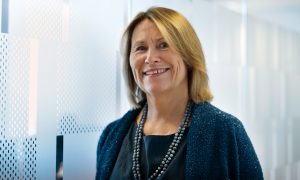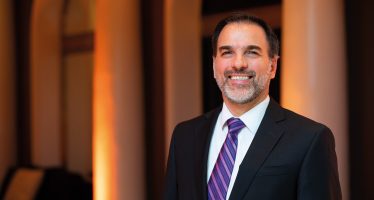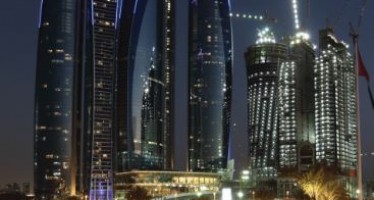Interview with Grete Faremo, Executive Director of UNOPS: Inclusive Infrastructure Development

Executive Director of UNOPS: Grete Faremo
In pre-pandemic Oct 2019 (about 20 months ago) you wrote an article for CFI.co magazine that highlighted the importance of infrastructure for communities, sustainable development and across the SDGs. If so, how have the world and your conclusions changed?
While the world has changed a lot since my 2019 article for CFI.co, much of what I argued remains relevant and important today. In 2019, UNOPS had recently produced a report with the University of Oxford which found that 92% of all the SDGs are influenced by infrastructure. This remains true. And very soon we will be publishing new research together with Oxford and UNEP which will highlight infrastructure’s contribution to greenhouse gas emissions and recommend ways we can address this. What both these reports illustrate is that sustainable infrastructure is absolutely critical in tackling climate change and achieving the SDGs.
The COVID-19 pandemic has highlighted how crucial infrastructure is to the smooth functioning of our societies. It revealed how unequipped our world’s infrastructure is to deal with a shock of this magnitude. As countries look to the future, infrastructure needs to be at the heart of a sustainable, resilient and inclusive recovery
It is true that we have a new set of issues to deal with and problems to solve, but the solutions can still be found in how we approach sustainability and development.
What major developments would you point to (pick your own time horizon)?
As a global community, our most immediate concern is tackling the pandemic. Ensuring that everyone, no matter where they are in the world, has the opportunity to be vaccinated and protect themselves against COVID-19.
We must also look towards our recovery, but in the context of achieving the 2030 Agenda. Before the pandemic, it was calculated that between $3 trillion and $5 trillion would be needed every year to meet the SDGs by 2030. Estimates vary widely, but most put the annual funding shortfall among developing economies in the region of $1 trillion and $2.5 trillion. Undoubtedly, the investment needed will now be greater than ever before.
COP26 in Glasgow later this year will be an opportunity for nations to come together and draw up new proposals committing themselves to a greener future. UNOPS stands ready to help any government achieve these aims.
How have your private sector and political experience equipped you for serving in your position at UNOPS?
Many of our leaders in UNOPS, including myself, have had experience in both the public and private sector, and we use that experience to guide the organization into the position as the best of both of those worlds.
It is true that UNOPS is run more like a private sector business than other UN agencies, but we also combine that with our responsibilities as a key member of the United Nations family. This requires careful consideration at every stage.
How is UNOPS supporting infrastructure development (including a case study example)?
UNOPS are the United Nations infrastructure and procurement specialists. We have a mandate for infrastructure, given to us by member states. It is our responsibility to provide support to infrastructure projects across peace and security, humanitarian, and development efforts.
We do this by supporting governments, the United Nations, and other partners in achieving the SDGs, and local objectives for people and countries. This is done through our project services in infrastructure, procurement and project management for a more sustainable world.
One of our most important projects we are currently working on is in Yemen. Today, only 10% of Yemen’s population are connected to the public electricity grid. UNOPS has partnered with the World Bank in two projects worth $200 million to restore access to critical services across Yemen in local communities to millions of Yemeinis.
In cities across Yemen, UNOPS is providing solar power solutions to health facilities and schools, rehabilitating 400 kilometres of roads, improving water and waste management services and creating 1.5 million days of temporary employment.
UNOPS is also currently working to restore electricity supply to 200,000 households, 220 health facilities and 280 schools in rural and peri-urban areas.
How does UNOPS fund projects? And how is UNOPS funded?
UNOPS does not fund projects. We implement projects on behalf of our partners, helping them to advance the 2030 Agenda and support the achievement of the Sustainable Development Goals.
UNOPS is a not-for-profit UN agency focused on implementation, we do not receive core funding from Member States. Therefore, UNOPS does not fund projects, we implement projects on behalf of our partners for a fee, which covers our costs.
Is gender equality improving – or the contrary (examples of both)?
In 2018, 38% of our workforce were women. I was proud to announce on International Women’s Day this year that we had reached gender parity. Today, women represent over 49% of our workforce.
But there is still work to do. We want to increase the number of women in senior positions. We are making good progress towards this with just over 43% in senior positions today, and we aim to increase this figure.
But inclusiveness goes beyond gender. We are looking to widen our approach, and strive to ensure a broader, more diverse, and more inclusive model, including issues like disability, ethnicity and race, economic status, LGBTQI+ identities and youth.
Is energy infrastructure the most critical for development?
The world has experienced rapid urbanization and population growth, especially in emerging and developing economies. This has led to an increased demand for energy. Reports show that by 2040, these developing economies will consume 65 per cent of the world’s energy.
That is why investments in sustainable, clean energy are so crucial. We must do all we can to support developing economies to make investments in affordable renewable energy. This will help them reduce their emissions and make progress towards the SDGs, while at the same time giving them the energy they need to continue to grow.
Is there a trade-off between the cost effectiveness of green energy vs. cheaper sources to the detriment of either climate impact or economic development?
Society’s concept of what the trade off is, is changing. Failing to act and adapt our energy needs will result in potentially catastrophic circumstances for many living across the world. Not addressing this is simply not an option.
This is not just something society should worry about, but businesses too. Last year, a report argued that more than half of global output depends on high-functioning biodiversity. We risk destroying this biodiversity without switching to cleaner “green” energy sources. And that means risking thousands of livelihoods at the same time.
Do we want a world we can all live together or a world that is uninhabitable for many? That is the true trade off.
About Grete Faremo
Grete Faremo is the United Nations Under Secretary-General and Executive Director of UNOPS. Ms Faremo took charge in 2014 having previously led four ministries in the Norwegian government as well as a number of leadership positions in the private sector.
She now leads the organization at a crucial time through the COVID-19 pandemic as UNOPS continues to work closely with partners around the world, delivering more than $2.2 billion worth of services in the last year alone.
IFC’s Blended Finance Unit blends funds from donor partners alongside IFC’s own in order to catalyze investments that would not otherwise happen because of market barriers. These funds can be used to undertake high-risk, high-reward projects that have strong potential to improve lives and reduce poverty. From fiscal year 2010 to 2020, IFC has deployed $1.6 billion of concessional donor funds to support 266 high-impact projects in over 50 countries, leveraging $5.8 billion in IFC financing and more than $6.8 billion from third parties.
About UNOPS
UNOPS’ mission is to help our partners build the future by providing infrastructure, procurement and project management services for a sustainable world.
You may have an interest in also reading…
EY on COVID-19 Pandemic: An Opportunity for Reinvention of Family Enterprises
Family businesses and SMEs face great challenges, as well as personal and financial losses, in these turbulent times. On the
Grant Thornton UAE: A Defining Period for UAE Capital Markets
The economy of the United Arab Emirates (UAE) is set to grow at a significant pace in 2014 due to
Restoring Public Confidence: Industrialising Delivery of Pension and Retirement Solutions
Over the past century, governments, as well as public and private sector pension and retirement providers, focused on expanding existing


















































































